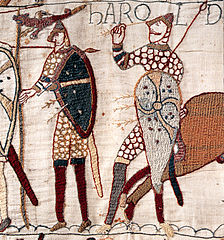The geneticists at ANDgene Laboratories who spend their time sequencing and decoding DNA in order, amongst other things, to see what they can learn about human behaviour, claim to have discovered a complex mutation which, they say, increases the chances of a person becoming a politician. This is determined by a change in the brain's functioning which tends to produce a different pattern of understanding. In the normal person, where the genes are unaffected by the mutation, there is a straightforward process of interaction during any conversation in which views and opinions are expressed and exchanged.
"However," explained a member of the research team, Dr. Ettore Schiaffini, "in the person with the observed disorder, many of these neuronal networks are blocked or disrupted and the person may find it extremely difficult to go further than to express their own view and may be almost entirely unable to understand or reciprocate a reply. They recognise the words but cannot disentangle the sense of them. My colleagues and I have chosen to call this condition interlocution aphasia. In some cases a reply may cause them distress or anger since they may see it as compromising what they feel they know will be best for the person with whom they are communicating. Often these people will be much less interested in establishing a relationship with other people and will, instead, be far more concerned in putting their knowledge of what is good for them into practice. Indeed, they may see the whole process of human social interaction as an obstacle to, as they see it, putting the lives of others back on the right path."
"Of course we always have to explain that there are environmental and epigenetic factors that are most probably at work here but nonetheless this mutagenesis affects a range of amino acids, glutamine, aspartate, glutamate, and so forth, which in turn affect a raft of neurotransmitters and synapses. Put together these have an overwhelming effect on the brain's functioning and its resultant behaviour."


 Bayeux tapestry fraud
Bayeux tapestry fraud